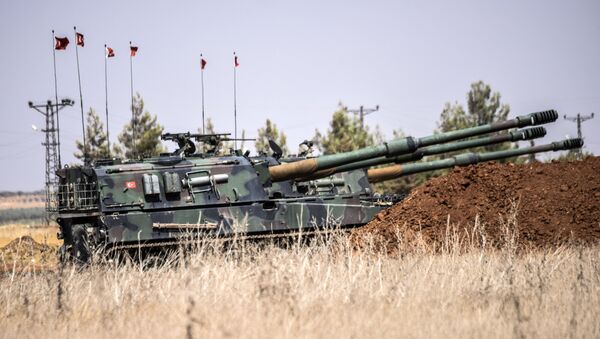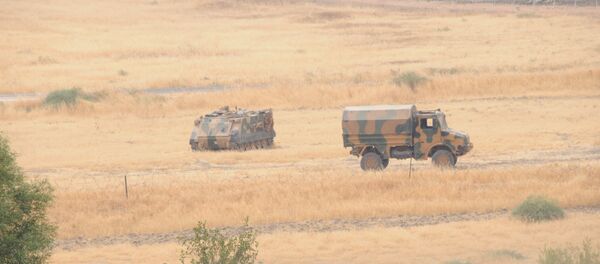"Germany and other NATO members have adopted an unfriendly approach toward Turkey. On the one hand, they have supported armed groups fighting against Turkey, including the Kurdistan Workers' Party (PKK) and the affiliated People's Protection Units (YPG). On the other, they have introduced a covert and indirect embargo on arms deliveries to Turkey," he said.
This is how it works. Gurbuz, an expert at Ankara-based Bilkent University and a former chairman of the Turkish Veterans Council, explained that as a NATO member, Turkey is supposed to only use weapons compliant with NATO's standards and can only purchase such weaponry from other members of the military bloc.
On July 20, 1974, the Turkish military sent its armed forces to the island country following the Cypriot coup d'état that took place five days earlier. Ankara took approximately 3 percent of the territory under control before a ceasefire was declared. The next month, Turkey launched a second invasion, capturing some 40 percent of the island.
Ankara's intervention prompted the United States to impose an arms embargo on both countries. Restrictions placed on Turkey were lifted three years later, while the arms embargo on Cyprus remains in place.
"If NATO members are truly interested in promoting stability and peace in the region, they should first and foremost stop supporting terrorists. There are numerous terrorist groups in Syria at the moment. NATO members provided and are still providing logistical assistance to many of those. For instance, NATO used to provide major assistance to the Free Syrian Army when it came to weapons deliveries. If today PKK fighters move freely in the border region between Turkey and Syria, this is due to the aid of our so-called allies in NATO," the analyst suggested.
Never miss a story again — sign up to our Telegram channel and we'll keep you up to speed!


